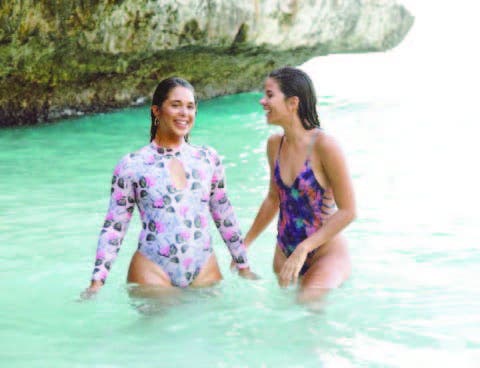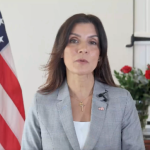Swimwear brand created with ocean plastic

Ozeano Swimwear was born at the end of 2015 by Shaina Alonzo.
“Ozeano Swimwear” marks the difference between Dominican fashion lines, helping to decontaminate our oceans by manufacturing 100% ocean plastic swimsuits.
Using a small amount of recyclable plastic bottles to make a swimsuit may seem like an irrelevant action, but it is exactly the opposite.
Considering that there are currently around 100 million tons of plastic accumulated at the bottom or floating on the surface of the oceans, of which 80/90% comes from human actions.
The masterminds behind these plastic bottle swimsuits are Shaina Alonzo, hotelier, specializing in innovation, and Raquel Díaz, psychology, graduate, educator, and entrepreneur, two surfer friends, who, united by love and respect for the sea, combined their talents to undertake and at the same time protect the environment.
They partnered with their Ozeano Swimwear and CeroPlast brands.
Shaina Alonzo, founder of the brand, explains that Ozeano Swimwear was born out of love and the connection it has with the ocean, “my lifestyle was 100% related to surfing and the love of bikinis, which inspired me to develop what I wanted to achieve and what I believed in,” she says.
She says that the brand emerged in 2015 with a social vision since 1% of sales were donated to the REEF CHECK RD foundation, which is in charge of preserving marine ecosystems in the Dominican Republic.

“But it wasn’t until 2018 that they really began to create internal changes and their mission and vision took a turn towards a more sustainable path and in view of a fashion with a greater purpose where it is necessary to use only recycled textiles or materials that do not have such a negative impact on the environment,” Alonzo explains.
While Ceroplast arose from a personal need, its founder Raquel Díaz, who, outraged by all the garbage and plastics that she found when she went surfing, decided to change her lifestyle.
Finding herself limited in finding eco-friendly and reusable products in the country, she decides to undertake this initiative to also teach and educate more people about this lifestyle and how to become a more conscious and responsible consumer with the environment and society.
What does this alliance offer?
Alonzo explains that it has a complete beach line: women’s swimwear, hand-crocheted beach outings, hair accessories, beach towels, toiletry bags, visors, handbags, hats.
“All our products are made with textiles that are made from recycled plastic bottles (swimwear and towels).”
While at Ceroplast, they have more than 50 products, all with certifications “that demonstrate their transparency when manufacturing because we must measure not only the environmental impact but also the social impact.
We have personal hygiene products, intimate hygiene, products to take away, for the kitchen, among others,” says its founder.

















IF the bikinis are to be used more than once by the public then this effort is worthy. If the same bikini is heavily used or exposed to sea water, they will leak microplastic too but at a lower rate than simply having that bikini in seawater 24-7.
There are still issues to be addressed in the area of physiological effects from contacting these plastic-made bikini especially in the sensitive area(reproductive organ entrance).
The initiative is novel and appreciated. It is just that we need more information and details on this.